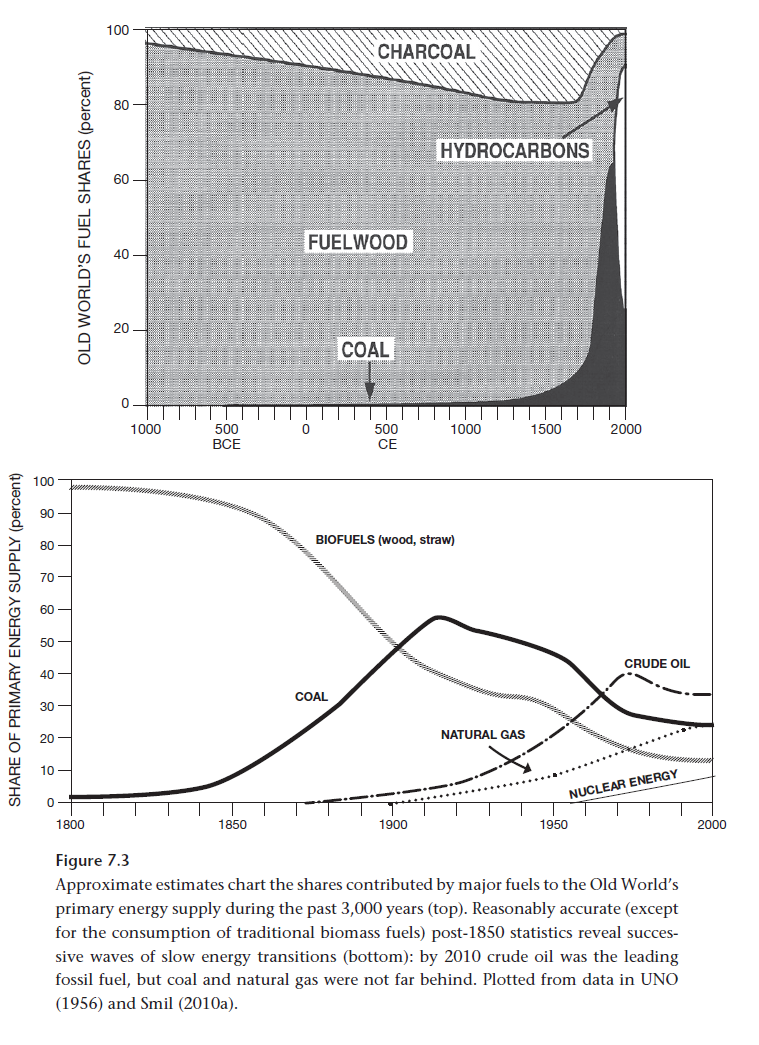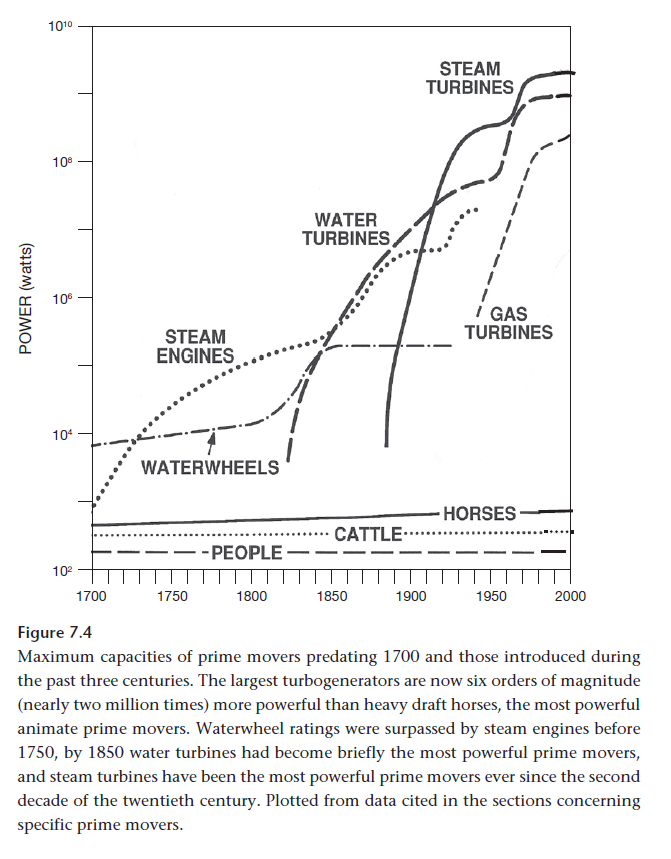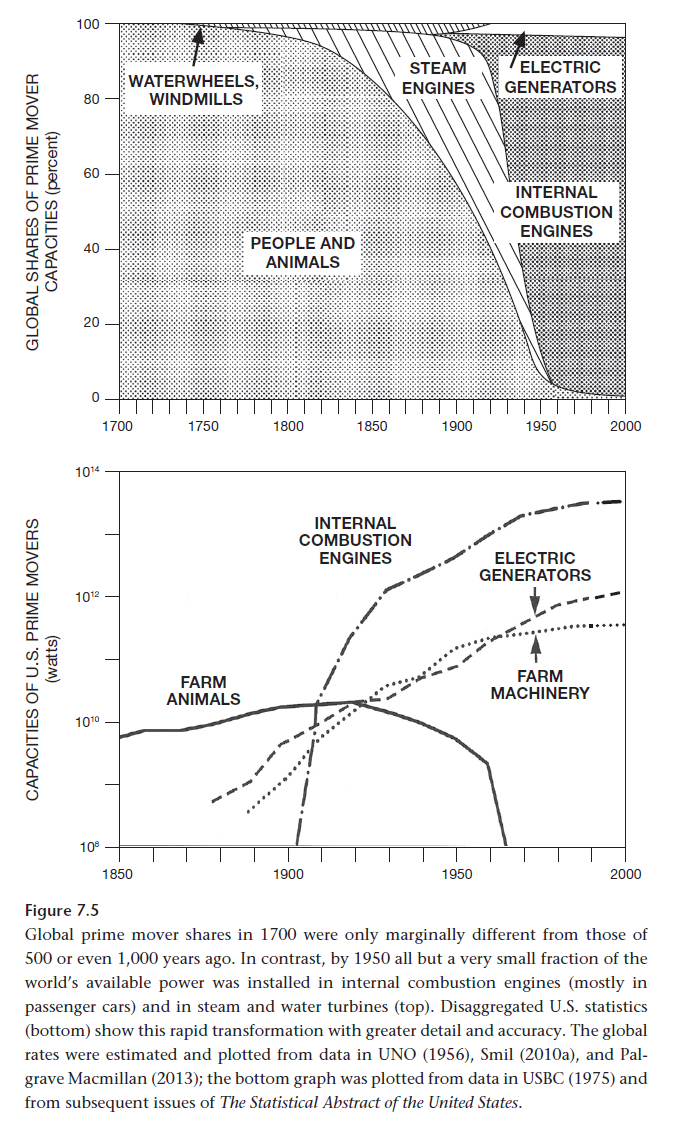History
Consider that lifecycle is a phenomenon that we can and should consider historically.
Cf. histories of commodity chains, Environmental History, global history, etc.
Bouchard, Jack. ‘Making the Leap: Commodity Chains and the Potential for Global Environmental Histories of Capitalism’. Esboços: Histórias Em Contextos Globais 28, no. 49 (2021): 698–715. https://doi.org/10.5007/2175-7976.2021.e81949.
Energy is is the underlying measure of all activities even if it cannot capture all the nuance.



Smil, Vaclav. Energy and Civilization: A History. Revised. 1994. Reprint, Cambridge, MA: MIT Press, 2017.
Questions:
- What is the cost of biological sensing, cognition, intelligence?
- What are the energetic costs of culture and knowledge?
- Acquiring
- Transmitting
- Retaining
- Searching
- Applying
- Managing
- Erasing
Technological Artificial Intelligence (AI) Footprint
Tamburrini, Guglielmo. “The AI Carbon Footprint and Responsibilities of AI Scientists.” Philosophies 7, no. 1 (2022): 4. https://doi.org/10/gp24xm.
Schwartz, Roy, Jesse Dodge, Noah A. Smith, and Oren Etzioni. “Green AI.” Communications of the ACM 63, no. 12 (2020): 54–63. https://doi.org/10/ghvhs3.
Biological Intelligence and Energy
Fidelman, Uri. “Intelligence and the Brain’s Energy Consumption: What Is Intelligence?” Personality and Individual Differences 14, no. 1 (1993): 283–86. https://doi.org/10/ctmfsc.
Life produces order to dissipate energy quicker (cf. nail). As a form of order, "nervous systems are for maximizing the global rate of entropy production."
Fultot, Martin, P. Adrian Frazier, M. T. Turvey, and Claudia Carello. ‘What Are Nervous Systems For?’ Ecological Psychology 31, no. 3 (2019): 218–34. https://doi.org/10/gqnnjd.
Organisational Intelligence
Intelligence capital
Knowledge as management
Bratianu, Constantin, and Daniel Andriessen. “Knowledge as Energy: A Metaphorical Analysis.” In Proceedings of the 9th European Conference on Knowledge Management, edited by Deogratias Harorimana and David Watkins, 75–82. Reading: Academic Publishing, 2008.
The entropic intellectual capital model
Bratianu, Constantin, and Ivona Orzea. “The Entropic Intellectual Capital Model.” Knowledge Management Research & Practice 11, no. 2 (2013): 133–41. https://doi.org/10/gp26nd.
Costs of cognition
Zénon, Alexandre, Oleg Solopchuk, and Giovanni Pezzulo. “An Information-Theoretic Perspective on the Costs of Cognition.” Neuropsychologia, Cognitive Effort, 123 (2019): 5–18. https://doi.org/10/ggdx6m.
Human cognition as optimisation of limited resources
Lieder, Falk, and Thomas L. Griffiths. “Resource-Rational Analysis: Understanding Human Cognition as the Optimal Use of Limited Computational Resources.” Behavioral and Brain Sciences 43 (2020). https://doi.org/10/gf23rr.